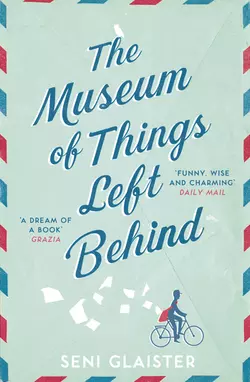The Museum of Things Left Behind

Seni Glaister
Тип: электронная книга
Жанр: Современная зарубежная литература
Язык: на английском языке
Стоимость: 650.01 ₽
Статус: В продаже
Издательство: HarperCollins
Дата публикации: 16.04.2024
Отзывы: Пока нет Добавить отзыв
О книге: Escape into this hugely enjoyable, big-hearted and beautifully written novel, set in Vallerosa, a European country you’ve never heard of before.FIND YOURSELF IN VALLEROSA, A PLACE LOST IN TIMEVallerosa is every tourist’s dream – a tiny, picturesque country surrounded by lush valleys and verdant mountains; a place sheltered from modern life and the rampant march of capitalism. But in isolation, the locals have grown cranky, unfulfilled and disaffected. In the Presidential Palace hostile Americans, wise to the country’s financial potential, are circling like sharks …Can the town be fixed? Can the local bar owners be reconciled? Can an unlikely visitor be the agent of change and rejuvenation this broken idyll is crying out for?Full of wisdom, humour and light, THE MUSEUM OF THINGS LEFT BEHIND is a heart-warming fable for our times that asks us to consider what we have lost and what we have gained in modern life. A book about bureaucracy, religion and the people that really get things done, it is above all else a hymn to the inconstancy of time and the pivotal importance of a good cup of tea.